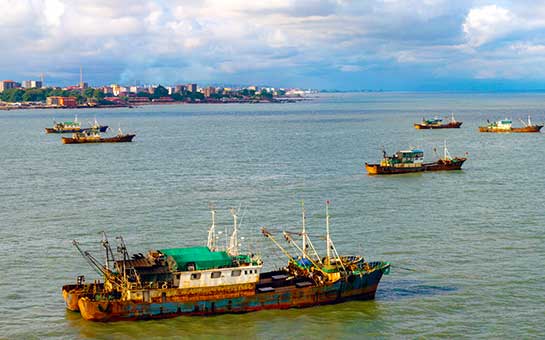A patchwork of colorful markets, bars, and Malinke music, Conakry is Guinea's capital. A small island town, this port capital comprises a fourth of the country's population. The vibrant nightlife, museums, stadiums, monuments, markets, gardens, and relaxing escapes in this bustling metropolis make it a destination that you'd regret not exploring while you are in Guinea.
Read through this guide to get an idea of what to see and do in Conakry, as well as discover information you need to know about travel medical insurance.
Travel Medical Insurance for Travelers in Conakry - FAQs
Travel medical insurance is a financial protection against unforeseen health expenses. You can get sick or hurt even after taking the most careful and conscious precautions. However, if you have travel medical insurance, you can avoid paying budget-breaking bills.
Do I need travel medical insurance for Conakry?
While there is no legal requirement for visitors to purchase medical insurance in order to visit Conakry, it really is something you should not go without. Traveling to Guinea can put you at increased risk of contracting an insect or water-borne disease. Even if you're judicious with drinking clean water and applying insect repellent, the possibility of an injury or unexpected illness is present no matter where you are. In order to not find yourself in a situation where you're far from home dealing with large medical bills, be a prepared traveler and have proper insurance.
Why buy travel medical insurance before traveling to Conakry?
Travel medical insurance works a lot like the airbags in your car. If something happens, it can take the financial blow and keep you safe. If you fall ill or get hurt in Conakry, the bills that you'd have to pay for private care could be staggeringly large without insurance. And if you need specialized care that is not available in Conakry or elsewhere in Guinea, you may need emergency medical evacuation. That would be another large expense. With the right insurance, you can focus on getting back to good health, instead of arranging cash for the bill payments.
Conakry's Most Popular Places for Travel
Conakry is a beautiful and charming coastal city with a lot of "must-see" attractions. Here are our recommendations for the top five places you should absolutely not miss.
Iles de Los
Just like the locals do, you can take a boat over to Iles de Los. The islands are a perfect place for a swim and some relaxing time. Experience calm and comfort in this escape from bustling Conakry.
Sante Marie Cathedral
If you are interested in historical and architectural buildings, Sante Marie Cathedral has much to offer. It is a large building with an interestingly shaped tower and many murals. You can see all of it in just five minutes, but you can gaze at and enjoy the beauty of the place for hours.
National Museum (Musée National)
The Guinea National Museum in Conakry is where you'll find the past and the present of the country on display. The sacred and secular items here make you understand the how, why, and when of present-day Guinea.
Conakry Botanical Garden
Located in the Camayenne part of the city, the Conakry Botanical Garden is where nature lovers can have one of the best experiences. Among the several other varieties of growing greens, the park is especially noted for its kapok trees.
Stade du 28 Septembre
A multipurpose stadium, the Stade du 28 Septembre is mostly used to host football matches. With a capacity to seat 25,000 fans at once, watching a match here could be among the highlights of your trip.
Key Guidelines for Travelers in Conakry
Conakry isn't an extraordinarily risky area. If you use common sense and exercise apt caution, you can avoid possible dangers or annoyances. The following guidelines aim to equip you with information.
Petty crime
Guinea is a developing nation. If you flash your valuables in public or are cavalier with your cash, you can invite pickpockets. Just use common sense in public places.
Utility interruptions
It's not especially uncommon for utilities such as electricity and water to be unavailable at times. It's best to charge your devices often and keep a supply of bottled water available should you encounter any interruptions.
Laws and social customs
Be aware that international visitors in Guinea are subject to all local laws and social customs. Take some time to read up on what is illegal or considered socially unacceptable. This way you won't be caught off guard with any sort of hassle from authorities.
Scam advisories
Local scam artists can attempt to lure you into purchasing things like diamonds and gold certificates. Be advised that the only purpose of these scams is to relieve you of your money. Do not engage with pushy strangers outside of airports or hotels.
Before You Travel to Conakry - Do This
- Get vaccinated. Talk to your physician and make sure you have all the appropriate vaccinations and boosters for your trip.
- Pack appropriately. Islamic laws are practiced in Guinea, and you should adhere to social and religious customs in your dress. Short dresses, sleeveless clothes and shorts should be avoided. Keep a scarf with you to cover your head, if required.
- Observe local laws and customs. If visiting during Ramadan, abstain from eating, drinking, or smoking in public during fasting hours.
- Buy insurance. Protect your health, your travel plans and your budget with travel medical insurance.
